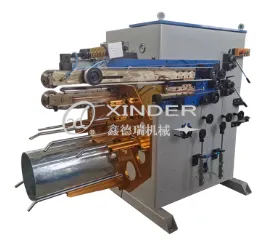-
 8613931787312
8613931787312 -
 Botou Industrial Zone on the east side of National Highway 104, Botou City, Hebei Province
Botou Industrial Zone on the east side of National Highway 104, Botou City, Hebei Province
- Afrikaans
- Albanian
- Amharic
- Arabic
- Armenian
- Azerbaijani
- Basque
- Belarusian
- Bengali
- Bosnian
- Bulgarian
- Catalan
- Cebuano
- Corsican
- Croatian
- Czech
- Danish
- Dutch
- English
- Esperanto
- Estonian
- Finnish
- French
- Frisian
- Galician
- Georgian
- German
- Greek
- Gujarati
- haitian_creole
- hausa
- hawaiian
- Hebrew
- Hindi
- Miao
- Hungarian
- Icelandic
- igbo
- Indonesian
- irish
- Italian
- Japanese
- Javanese
- Kannada
- kazakh
- Khmer
- Rwandese
- Korean
- Kurdish
- Kyrgyz
- Lao
- Latin
- Latvian
- Lithuanian
- Luxembourgish
- Macedonian
- Malgashi
- Malay
- Malayalam
- Maltese
- Maori
- Marathi
- Mongolian
- Myanmar
- Nepali
- Norwegian
- Norwegian
- Occitan
- Pashto
- Persian
- Polish
- Portuguese
- Punjabi
- Romanian
- Russian
- Samoan
- scottish-gaelic
- Serbian
- Sesotho
- Shona
- Sindhi
- Sinhala
- Slovak
- Slovenian
- Somali
- Spanish
- Sundanese
- Swahili
- Swedish
- Tagalog
- Tajik
- Tamil
- Tatar
- Telugu
- Thai
- Turkish
- Turkmen
- Ukrainian
- Urdu
- Uighur
- Uzbek
- Vietnamese
- Welsh
- Bantu
- Yiddish
- Yoruba
- Zulu
Precision and Efficiency in Metal Packaging: The Role of Can Welding Machines
In the metal packaging industry, the reliability and strength of the seal are critical to product quality and consumer safety. From food and beverage containers to industrial chemical cans, a strong, leak-proof seam is essential. This is where a can welding machine, can welder, and tin can welding machine come into play. These specialized welding systems are designed for high-speed, precise welding of cylindrical metal containers. In this article, we’ll explore how these machines work, their benefits, and their vital role in modern can production.

What Is a Can Welding Machine?
A can welding machine is a specialized type of seam welder used to join the side seams of cylindrical or rectangular metal cans. Instead of using solder or adhesives, this machine utilizes electrical resistance welding to create a continuous and durable seam. The process involves overlapping the metal edges of a can body and passing them through rotating copper wheels that apply pressure and electric current, fusing the metal surfaces together.
Key features of a typical can welding machine:
High-speed operation (up to hundreds of cans per minute)
Adjustable welding current, speed, and pressure
Minimal distortion and clean weld lines
Compatibility with various metals, including tinplate and aluminum
The precision and repeatability of can welding machines make them indispensable in industries like food packaging, aerosol can manufacturing, and industrial container production.
The Versatility of the Can Welder in Packaging Lines
A can welder refers to the broader category of machines or systems used to weld metal cans. These can range from small-scale manual units for prototyping to fully automated systems integrated into high-speed production lines. The primary function remains the same: to ensure the integrity and strength of the can body seam.
Benefits of using a can welder:
Consistent weld quality: Reduces the chance of leaks or structural failure.
Automation-ready: Can be integrated with other packaging line equipment such as flanging, beading, and seaming machines.
Energy-efficient: Resistance welding uses lower energy compared to other joining methods like soldering.
Environmentally friendly: No need for fluxes, filler metals, or adhesives.
In food and beverage manufacturing, the can welder helps ensure long shelf life and safe product containment. For industrial use, it guarantees that chemicals, paints, and oils are securely sealed, even under pressure.
Specialized Applications of the Tin Can Welding Machine
The tin can welding machine is a specific type of can welder designed for tinplate cans, commonly used in the food, beverage, and paint industries. Tinplate offers corrosion resistance, making it ideal for preserving perishable goods. The tin can welding machine must therefore provide a clean, strong weld without compromising the protective coating of the tin layer.
Key characteristics of tin can welding:
Non-contaminating: Maintains the integrity of the internal protective lacquer.
Smooth seams: Prevents rust and improves appearance.
Seam integrity: Supports internal pressure changes (e.g., during sterilization or pasteurization).
Advanced tin can welding machines include systems for:
Automatic body blank feeding
Seam tracking and real-time monitoring
Quality control and rejection of faulty welds
Some systems also feature quick changeover tools, allowing manufacturers to switch between can sizes quickly and efficiently—essential for today’s dynamic packaging needs.
In the high-demand world of metal packaging, ensuring the safety, strength, and durability of can seams is a top priority. The can welding machine, can welder, and tin can welding machine offer a reliable, efficient, and scalable solution for manufacturers who prioritize quality and throughput.
As industries continue to evolve toward sustainability and automation, investing in advanced can welding technology is essential for staying competitive. Whether for food, paint, or chemical packaging, these machines ensure every can leaves the factory sealed to perfection.
-
Understanding Seam Welding Technology: Applications and Equipment OverviewNewsAug.15,2025
-
The Rise of Automation in Welding: Enhancing Precision and ProductivityNewsAug.15,2025
-
The Applications and Importance of Laser Welding in Modern ManufacturingNewsAug.15,2025
-
Revolutionizing Industrial Welding with Automatic Seam Welding TechnologyNewsAug.15,2025
-
Advancing Metal Joining Technologies with Laser Welding and Soldering SolutionsNewsAug.15,2025
-
The Rise of Laser Welding: Precision Meets Power in Modern MetalworkNewsAug.06,2025
-
Streamlining Industrial Packaging: The Power of Barrel Production LinesNewsAug.06,2025
-
 Pneumatic Handle Welding MachineSep . 13, 2024
Pneumatic Handle Welding MachineSep . 13, 2024 -
 Fully Automatic Kaiping Production LineOct . 17, 2024
Fully Automatic Kaiping Production LineOct . 17, 2024 -
 Fully Automatic Metal Bucket Lifting HeadphonesSep . 14, 2024
Fully Automatic Metal Bucket Lifting HeadphonesSep . 14, 2024

